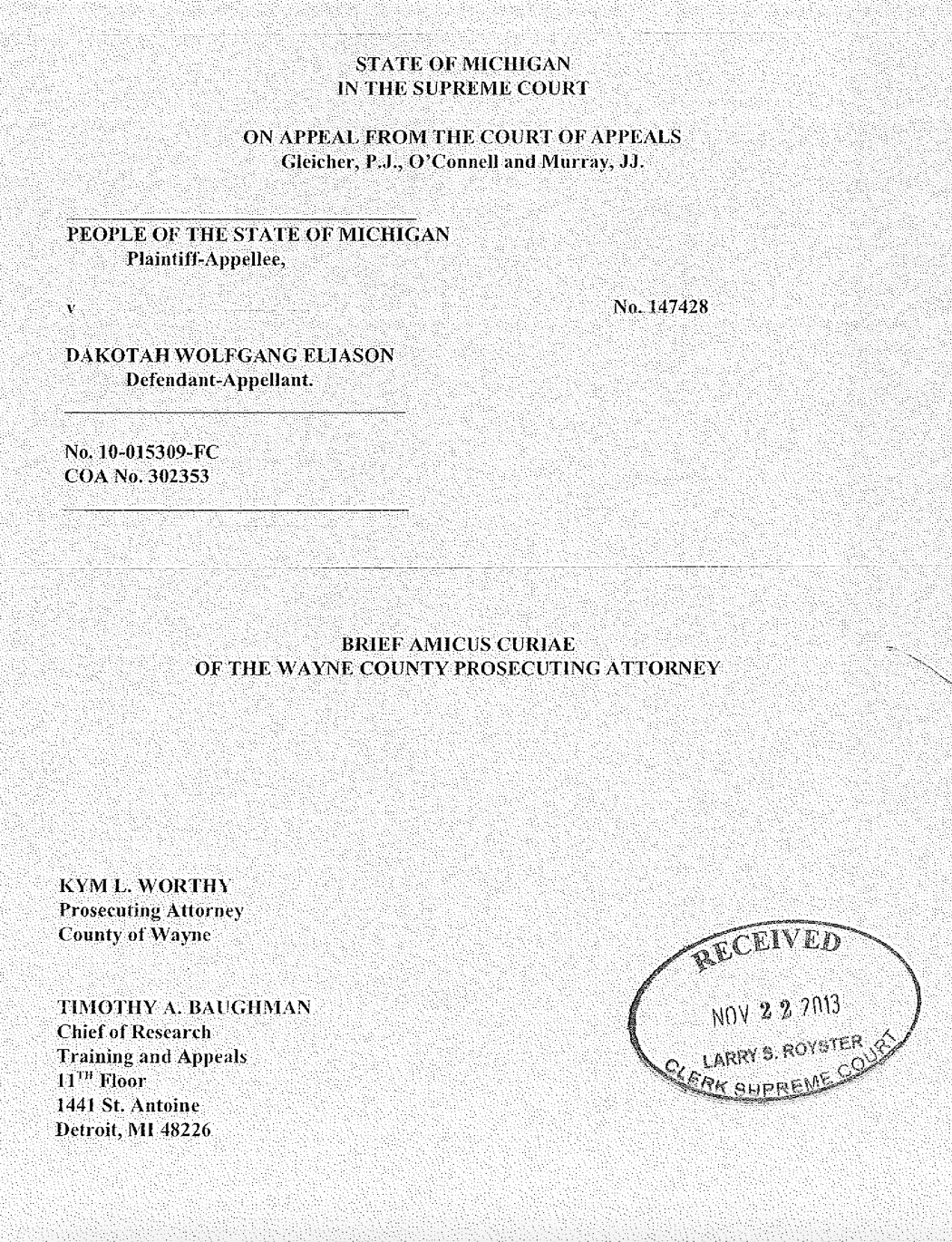
Summary of Argument
A trial judge sentencing a person convicted of first-degree murder must sentence that person to life in prison, and has no authority whatever to direct the Parole Board with regard to whether the person sentenced is or is not eligible for parole. Under v Alabama, the denial of any parole consideration for those convicted of first-degree murder under 1VICL § 791.234(6)(a) is unconstitutional as applied to juvenile murderers. The unconstitutional application can be severed, so that, unless and until the legislature acts, a juvenile first-degree murderer is eligible for parole consideration in 15 calendar years.